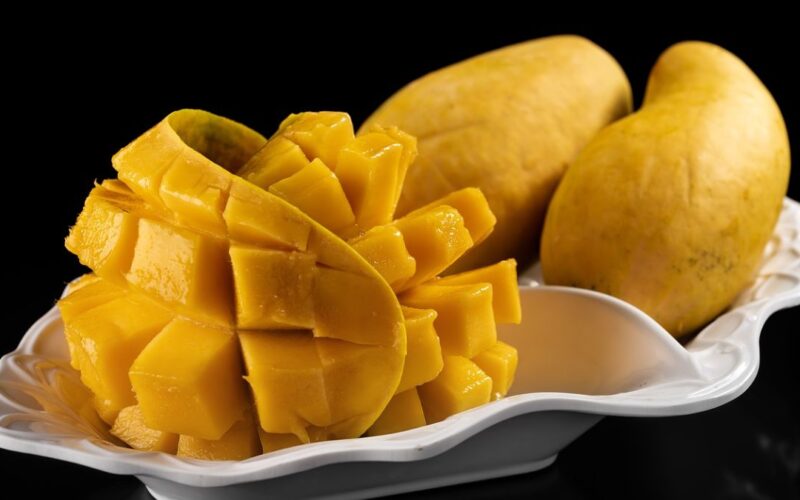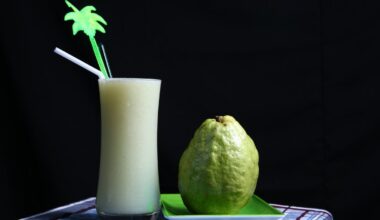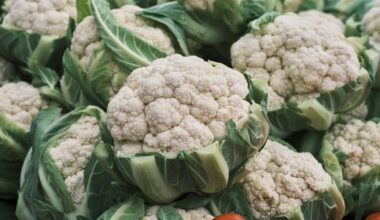Mangoes, often hailed as the “King of Fruits,” are a tropical delight cherished for their succulent sweetness and vibrant flavors. With a rich history spanning centuries and a global presence, mangoes have become synonymous with summer indulgence. In this exploration, we uncover the top 10 fascinating facts about mangoes, celebrating the luscious marvel that captivates taste buds around the world.
Mango Varieties Abound
Mangoes come in a stunning array of varieties, each offering a unique combination of taste, texture, and aroma. From the globally popular Alphonso and Haden to the locally cherished Ataulfo and Keitt, mango enthusiasts can savor an impressive diversity of flavors. The nuances in sweetness, acidity, and fragrance make mango tasting an adventure in itself.
Global Mango Belt
Mangoes thrive in tropical and subtropical regions, forming what is known as the “Mango Belt.” This belt spans the globe, encompassing countries such as India, China, Thailand, the Philippines, Mexico, and Brazil, among others. The diverse climates within this belt contribute to the cultivation of a wide variety of mangoes, making it a truly global fruit.
Ancient Roots and Cultural Significance
Mangoes have deep roots in human history, with evidence of cultivation dating back over 4,000 years in South Asia. The fruit holds cultural significance in many societies and is often associated with rituals, ceremonies, and symbolism. In Indian mythology, the mango is considered a symbol of love and fertility, and it is mentioned in ancient Sanskrit texts.
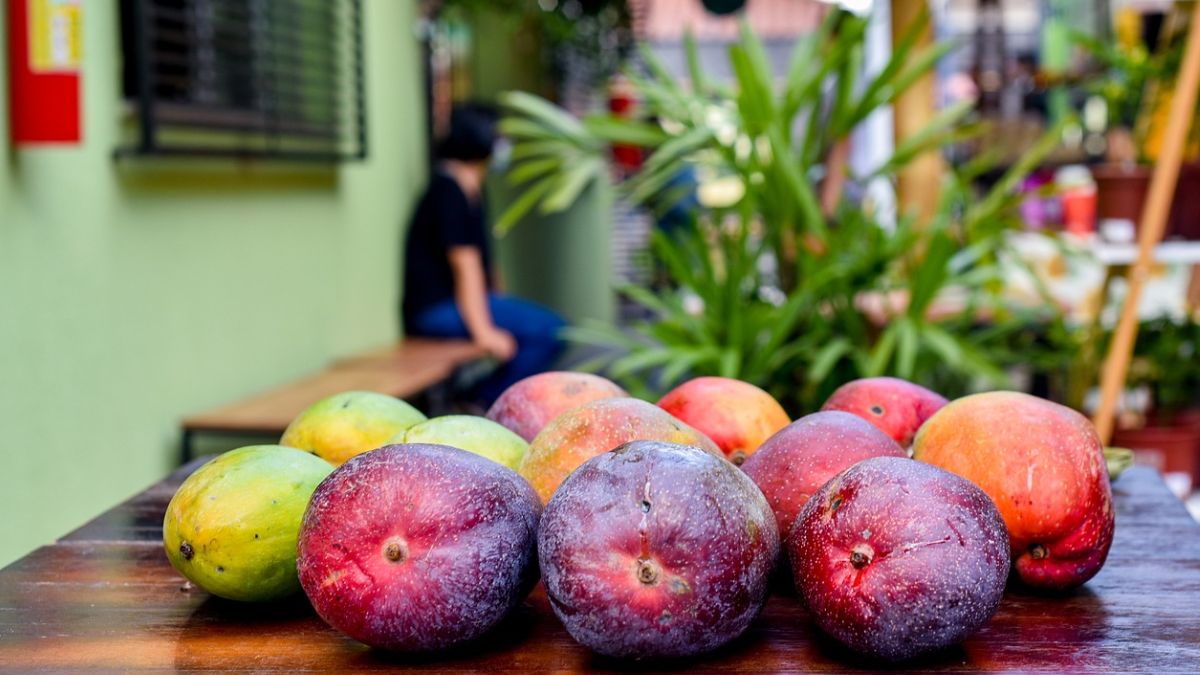
Health Benefits of Mango
Beyond their delectable taste, mangoes offer a host of health benefits. Packed with essential vitamins, minerals, and antioxidants, mangoes contribute to overall well-being. They are rich in vitamin C, vitamin A, and fiber, supporting immune function, vision health, and digestive health. The presence of enzymes like amylases aids in digestion, making mangoes a nutritious addition to the diet.
Mango in Cuisine
Mangoes are incredibly versatile in the kitchen, finding their way into a myriad of culinary creations. From refreshing smoothies and vibrant salads to savory chutneys and decadent desserts, mangoes add a burst of flavor and tropical flair to dishes. The sweet and savory balance of mangoes makes them a favorite ingredient in both traditional and innovative cuisines.
Mango Festivals Celebrate the Fruit
Around the world, mango festivals are held to celebrate the beloved fruit and showcase its diversity. These festivals often feature tastings, culinary competitions, cultural performances, and educational activities. Notable mango festivals include the International Mango Festival in Delhi, India, and the Bowen Mango and Townsville Mango festivals in Australia.
Mango History in the United States
Mangoes have a unique history in the United States. The first mango tree was planted in Florida in the early 19th century, and the state has since become a major contributor to the country’s mango production. The popular Tommy Atkins variety, known for its vibrant red and green skin, is widely cultivated in the United States and is a common sight in grocery stores.
Global Mango Production and Trade
Mangoes are a major global fruit commodity, with significant production and trade. According to the Food and Agriculture Organization (FAO), India is the largest producer of mangoes, followed by countries such as China, Thailand, Indonesia, and the Philippines. The international mango trade plays a crucial role in meeting the demand for this tropical fruit in various parts of the world.
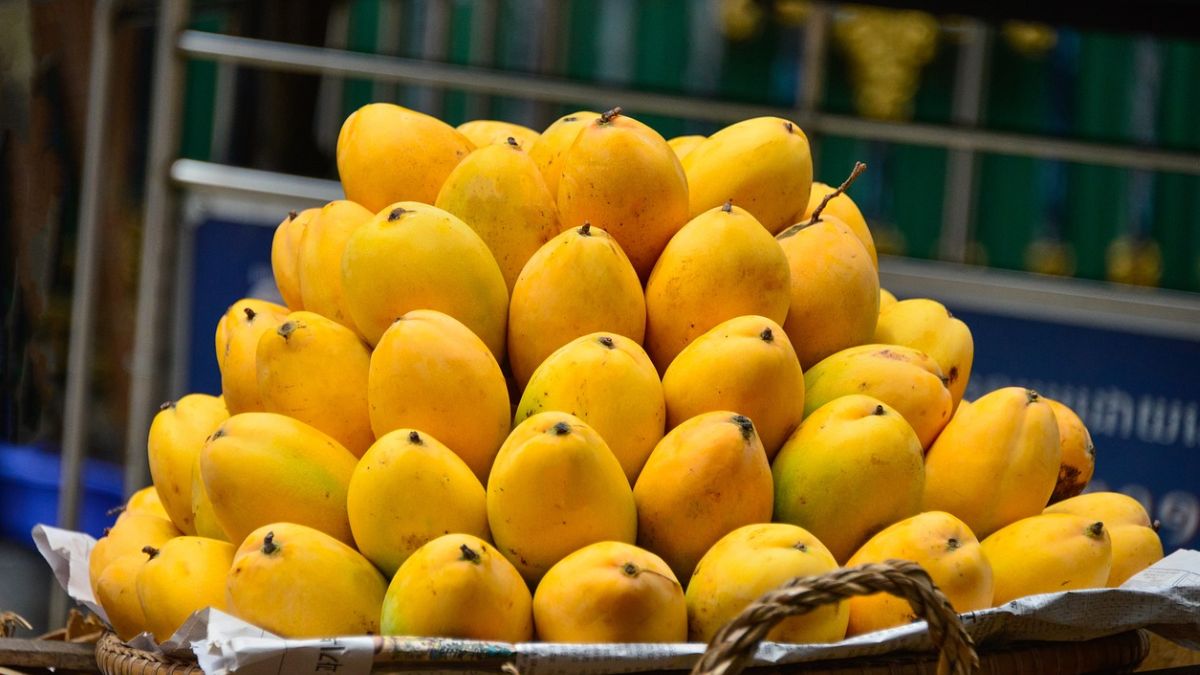
Mango Myths and Folklore
Mangoes have inspired a wealth of myths and folklore across cultures. In some regions, it is believed that the mango tree possesses divine qualities, symbolizing prosperity and fertility. Mangoes are often associated with love and romance, featuring prominently in folklore as a token of affection and admiration.
Mangoes in Ancient Texts
References to mangoes can be found in ancient texts and literature. In the classical Indian Sanskrit poem “Meghadūta” by Kalidasa, mangoes are praised for their sweetness and are used as a metaphor for love. The fruit’s prominence in historical texts highlights its enduring significance in cultural and literary traditions.
Mangoes, with their tantalizing taste and rich history, have earned their place as a global favorite. From the ancient civilizations of South Asia to the modern-day mango festivals that celebrate this tropical delight, the journey of the mango is a testament to its enduring popularity. As consumers continue to relish the sweetness of this “King of Fruits,” the mango remains a symbol of summer, cultural diversity, and the simple joy derived from nature’s bountiful treasures.
